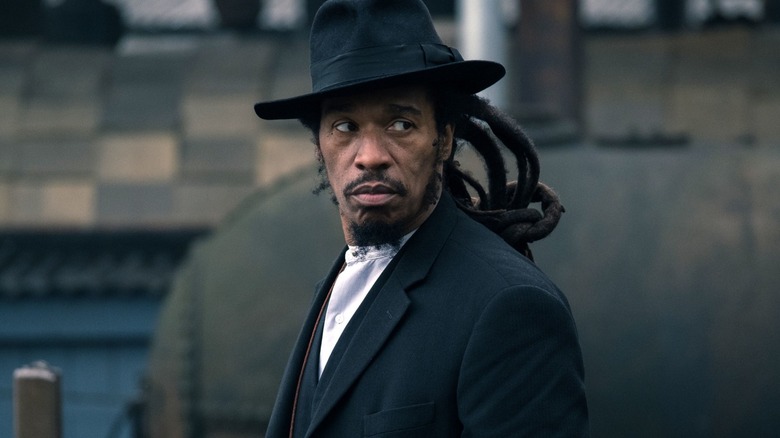British poet Benjamin Zephaniah, who famously rejected an honor from Queen Elizabeth II over Britain’s empire and links to slavery, died on Thursday at the age of 65, his family said.
The Rastafarian poet and writer, whose work was greatly influenced by the music and poetry of Jamaica, also turned his hand to acting when he appeared in series six of the hit show “Peaky Blinders” as the character Jeremiah Jesus.
“It is with great sadness and regret that we announce the death of our beloved husband, son and brother in the early hours of this morning 7th December 2023,” his family said on Instagram, adding that he had been diagnosed with a brain tumor eight weeks ago.
In 2003 he snubbed an Order of the British Empire (OBE) award from Queen Elizabeth for services to literature, which Zephaniah said prime minister Tony Blair had recommended.
He said the award’s name reminded him of his ancestors’ “brutal” suffering at the hands of their white masters.
“I get angry when I hear that word ’empire’; it reminds me of slavery, it reminds (me) of thousands of years of brutality — it reminds me of how my foremothers were raped and my forefathers brutalised,” he said at the time.
Born in 1958 in the central English city of Birmingham, where “Peaky Blinders” is set, Zephaniah was the son of a Barbadian postman and a Jamaican nurse.
He was dyslexic and left school at the age of 13, unable to read or write, and as a young man served a prison sentence for burglary.
His first writings used dub poetry, a Jamaican style of work, and after moving to London in his twenties he began to establish himself as a poet.
His first book of poetry, “Pen Rhythm”, was published in 1980.
‘True pioneer’
In 2008, The Times daily included him in a list of Britain’s top 50 post-war writers.
The life-long vegan’s first book of poetry for children, “Talking Turkeys”, was a surprise best seller in 1994, requiring an urgent reprint after just six weeks.
He went on to publish four gritty novels about the lives of teenagers, credited with getting young people into reading by providing material they could relate to.
Zephaniah’s family said he had been a “true pioneer and innovator”.
“He gave the world so much. Through an amazing career including a huge body of poems, literature, music, television, and radio, Benjamin leaves us with a joyful and fantastic legacy,” it said.
“Thank you for the love you have shown Professor Benjamin Zephaniah,” it added.
The Black Writers’ Guild, which Zephaniah helped to establish, paid tribute to “a deeply valued friend and a titan of British literature”.
“Benjamin was a man of integrity and an example of how to live your values,” it said in a statement.
“His life was a testimony to the transformational power of reading and the importance of craft.”
